Graham Reid | | 5 min read
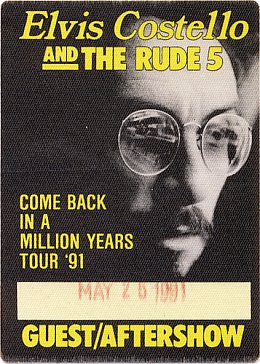
Elvis Costello has lurked about under any number of names in the past decade or so. He’s been Howard Coward of the Coward Brother (when he sang with T-Bone Burnett), Napoleon Dynamite (for his ’86 Blood and Chocolate album), cynically called himself “The Beloved Entertainer” and for a while even worked under his birth name, the flamboyantly Irish Declan Patrick Aloysius MacManus.
But on this day he’s hiding out in a Hollywood hotel under the pseudonym “Mr De Witt.”
And he’s very hard to get hold of. Not his fault he says, before the phone line goes maddeningly dead yet again.
“The place is overrun with teen groups,” he explains. “New Kids on the Bock and LL Cool J are here so we are besieged by crazed 15-year-olds. I thought they were all for me, but they come up with an album and ask if I could sign it ... for their grandmother.
“But,” says this one-time Buddy Holly-with-a bitch-on lookalike who now sports a ragged Amish-like beard, “I still stay under a pseudonym because there is the sinister element of those people who haven’t, shall we say, got all their faculties.
“From past experience I’ve found caution is a good idea...and as you might expect in America, there are those odd people who decide to ring at 3am and ask what I meant by the lyrics of such and such a song. They’re always a worry.”
It is little surprise that Costello is a target for the loopies and over-serious undergraduates.
For over a dozen albums since his vehement My Aim Is True in ‘77 his lyrics have lacerated and impaled, caressed and cajoled. And for half of that time he has worked with the traditional rock band, or alongside artists such as John Hiatt, Paul McCartney, the Dirty Dozen Brass Band from New Orleans and traditional Irish musicians.
As his contemporaries flounder around with world music (David Byrne, Peter Gabriel) or seek out the blues connection by way of discovering their “roots” (U2), Costello still finds something to say within the three-minute, verse/chorus rock song.
“I still feel I can get my ideas and stories told within that form, although there is a lot of room for different kinds of music and one of the things I resent is this fascistic notion that everything should follow some format.
“I don’t understand why dance, for example, should now take prominence over other melodic or lyrical kinds of music. But I do find the pop-song form interesting, I think...”
And for the fourth time the phone goes dead. Somewhere in a Hollywood hotel a New Kids fan is jamming the lines again.
Three days later the phone rings and there, unexpectedly, is Costello again, phoning now from Japan. For a man who virtually redefined the phrase “having a difficult relationship with the press,” he is again charming, cheerful, talkative and unnecessarily apologetic for the earlier phone fiasco.
Perhaps it is because his new album Mighty Like A Rose is, in the words of Q magazine, classic Costello – perhaps even his best yet,” that Costello sounds so chipper – but his past disregard for critical opinion makes that unlikely.
Certainly Mightily Like a Rose is an exceptional album in a career of recordings of “his best yet.”
Yet despite Costello’s’ easy manner, Mighty still boils with vitriol and acid.
On The Other Side of Summer he nails John Lennon and Pink Floyd in a devastatingly sharp singalong couplet: “Was it a millionaire who said ‘imagine no possessions‘? Was it a poor little school-boy who said ‘we don’t need no lessons‘? ” and he welcomes in the apocalypse in the Dylanesque Hurry Down Doomsday.
And, as always with his political sensibilities tuned into the cynical times, he turns Invasion Hit Parade about the American invasion of Panama on a very timely image: “the liberation forces make movies of their own, playing their Doors records and pretending to be stoned....”
Watching the invasion on television, he says, was like seeing the way Coppola portrayed the soldiers in Vietnam in Apocalypse Now.
“It was acted out as some cinematic fantasy and I had to have a sick laugh at television here today because already CNN had its “Soviet Crisis’ logo. Someone had been up all night working on that one.
“That song is concerned with that cynical re-arrangement of conscience and how some things are better television than others. Problems are stage-managed and recede in importance because the media just goes away.
“The music business plays a small – and happily pathetic – part in it.”
If Costello’s current work conveys that vinegary vengeance of old, he is still the master of the cripplingly fragile ballad, as All Grown Up on the new album proves. And also, as the musical and lyrical asides scattered around show, acutely aware of the history of rock. Here’s a riff from Smokestack Lightning, there’s a Leonard Cohen phrase and The Other Side of Summer, a “tip of the cap to the Beach boys.”
“The song was begging for that treatment,” he laughs as he acknowledges listening to the Beach Boys’ Holland and Surf’s Up albums during the recording period.
“I heard all the singles as a kid and some people regard Brian Wilson as a great artist. But people in America to a horrible degree see the Beach Boys as a tired oldies band and can’t separate Wilson from the image of a band doing TV specials on the White House lawn.”
These days, this son of a dance-band singer and a record shop manager says he doesn’t buy records or pursue listening with the same obsessiveness as 10 years ago. He says he hears as much as gets in his ear and doesn’t subject himself to listening as he once did.
“I try not to talk about who I listen to now because if the band doesn’t come up to expectations it’s somehow my fault because I said they were good.
“I explore a lot of music like jazz and classical that I obviously don’t play so I’m not cut off from the emotions that music can inspire.”
And as a spin-off from that he has just completed 10½ hours of soundtrack music for a television series written by Alan Bleasedale. It allowed his imagination to run free and not be troubled by the constraints of pop.
But he loves the tradition of the songs and while recording Mighty Like a Rose also did an album of covers in the Caribbean, “the equidistant point for all the musicians and we wanted a do-it-quick live-in.”
The album of songs from 1935 to 1970 is still to be mixed and he downplays its importance and goes cagey on the contents.
“Covers show another side of an artist. People used to do them regularly but somehow it became unacceptable or had to signify something mysterious and deeply significant.
“I’ve always done them in shows or on albums and you’ll probably hear some in concert. But I have no idea when the record will arrive and it’s not the sort of thing I want to come out with a big drum roll. I did them because I thought there really was another good version not be done other than the one I learned from.”
Curiously for a man whose live concerts are indelibly etched on memories – simply say “Costello at His Majesty’s” to anyone who was there at that Auckland show in the early 70s and watch the glaze-over - he has yet to release a live album.
And that’s unusual in a career now approaching its 15th year.
“It’s all in choosing the night and I’ve never really got into it. I’ve recorded a lot of concerts and look on them as an insurance policy; my heirs can release them.
“But I’ve always got a lot of new material to release so haven’t wanted rehashed older ones. Finding the definitive version of your repertoire is pretty tough, too. Gestures and non-musical elements which are satisfying at the time are less successful when they are reheated. And I’ve never been a fan of live recordings anyway unless they capture something special.”
Stil courteous but with a further apology for being so pressed for time, Elvis Costello takes his leave.
Mr De Witt he may be but he also sounds like the beloved entertainer. And on the night take a side-bet he’ll be Napoleon Dynamite.

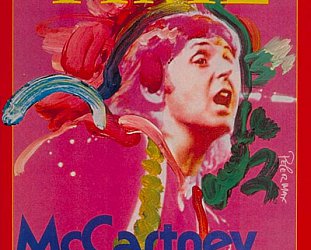
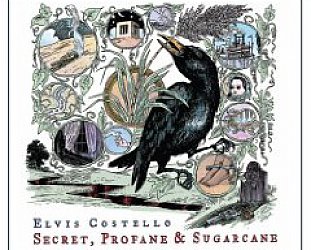

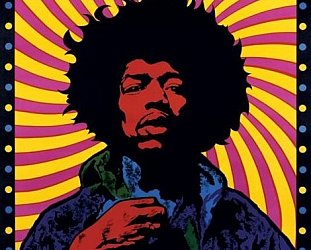
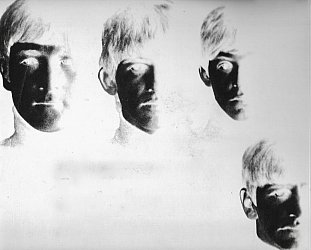
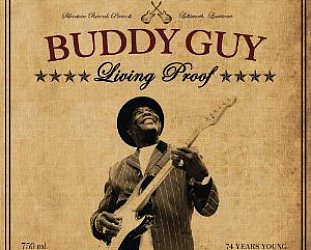
post a comment